How do you know if you are relationship is turning toxic? What are the signs your relationship is turning toxic? This article is going to explore in detail the signs your relationship is turning toxic and how to keep an eye out for the early signs of a toxic relationship.
Nearly every toxic romance begins with passion and the promise of a bright future. But somewhere along the road to the “happily ever after,” things go sideways.
Profound feelings of disappointment, betrayal, and confusion begin to arise with alarming frequency. The once trusted and idealized lover becomes a manipulative anchor weighing you down.
Many men and women struggle with recognizing the early signs of a toxic relationship. In these cases, the early signs of trouble are there, but rather than raising red flags, these concerns are brushed aside as the usual “bumps in the road” that occur in every new relationship.
This confusion can be greatly reduced if you understand what to look for as a warning sign that a relationship is likely to turn toxic. Listed below are eight qualities that frequently appear in toxic relationships.
The more items that apply to your relationship or your partner, the more likely your relationship is headed to heartache.
Related: 5 Surprising Signals That Your Relationship Is Toxic
8 Signs Your Relationship Is Turning Toxic
1. You experience frequent conflict that feels personal and involves derogatory interactions (such as character attacks and intentionally hurtful comments).
2. Your partner demonstrates a lack of support for your core values or goals and minimizes the things that are important to you. (For example, if you missed out on a big promotion and are feeling sad the following weekend, a toxic partner might say, “So what? You didn’t get the promotion. It’s been two days already. Are you going to spoil our weekend just because of a little setback?”).
3. One or both people in the relationship frequently mock or make fun of the other.
4. You frequently daydream or fantasize about ending the relationship or being with someone else.
5. You begin to dread spending time with your partner.
6. In private, your partner interacts with you in ways that you find disturbing and would be embarrassed to reveal to your best friend
7. Your partner frequently uses guilt to get his or her way.
8. Your partner insists on monopolizing all of your free time.
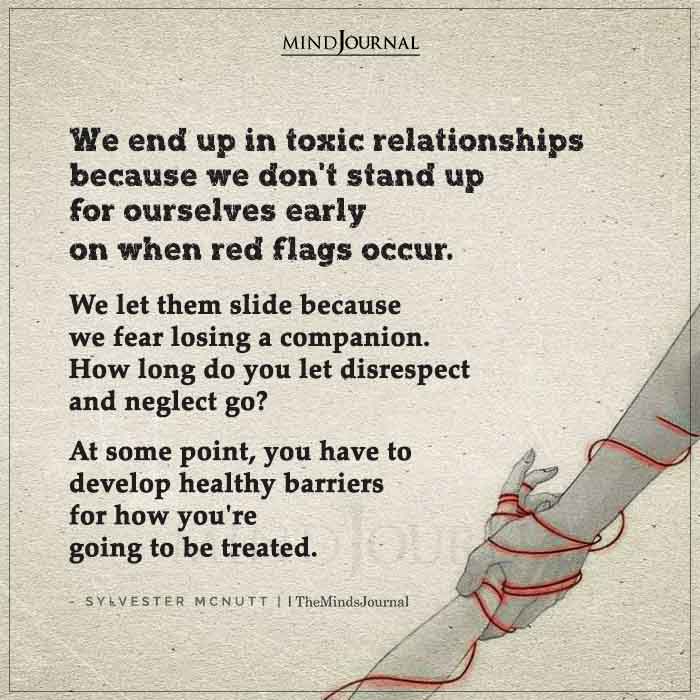
How To Screen Out Bad Romantic Partners
If you checked off a number of the items above you may be wondering “How in the world did I get myself into this mess?” Well, you’re not alone. Most everyone has been there.
Fortunately, there are some easy-to-identify ‘red flags’ to look for in your love interest’s personality and character that can help you avoid making a poor choice.
1. Narcissism
When the other person has strong narcissistic tendencies you need to proceed cautiously.
Narcissism will come up most often in selfishness, self-aggrandizement, and feelings that are easily hurt.
2. Dishonesty
Meaningful and long-lasting relationships require trust. The foundation for trust is built on honesty.
In the beginning phase of a romantic relationship, some men and women tend to disregard initial displays of dishonesty, They rationalize them away as being only minor infractions.
Or the dishonesty was shown to someone else, not to them. Such thinking is naive and leads to heartache.
Related: 6 Early Red Flags Of A Toxic Relationship
3. Chronic Jealousy
If your love interest is frequently jealous you can be certain that he or she struggles with profound insecurities.
Such a person expects betrayal and will become more and more suspicious over time. Endless arguments, defensiveness, waning intimacy, and deep-seated resentment are bound to follow.
4. Extreme selfishness
Healthy relationships require give and take. The intensely selfish individual is all about taking and not so much about giving. Especially if giving requires a personal sacrifice of time, energy, or foregoing some pleasure.
Deeply rooted selfishness will result in a lack of compassion – towards others in general, and frequently toward you. Unless you enjoy being treated like an emotional ATM machine, avoid the selfish man or woman.
What’s Preventing You From Seeing Red Flags Before It’s Too Late
Many people find themselves mired in a relationship with a toxic partner – or worse, a chronic pattern of toxic relationships – and wonder how they got there. How could they have missed the early and obvious signs that the person to whom they were attracted was so toxic?
It is an easy mistake to make when, in the initial stages of a romance, the blinding glow of attraction eclipses one’s better judgment. Warning signs are overlooked, or dismissed.
One reason for this is that intense romantic attraction leads to a diminution of activity in the amygdala, the brain’s guard post, or early warning detection system. This small region of your brain is tasked with identifying threats to your well-being.
But with your amygdala gripped in the heightened emotions of an intense attraction and a new romance, your defenses are lowered. Information about your love interest that might otherwise set off alarm signals is not registered as problematic.
When the thrill of a new romance overcomes your senses (and your amygdala) and you no longer see the red flags in a relationship – let alone heed them – you are more likely to go adrift and find yourself in a toxic relationship.
But there is another issue that contributes to missing these red flags. In the early phase of a romance, you do not really know your partner very well. That’s part of the excitement – it can feel like a treasure hunt as you discover more about the attractive individual that just recently walked into your life.
Filled with romantic attraction and passion unleashed by the genuinely good qualities you’ve already seen, it is easy to unconsciously “fill in” the remaining unknown qualities of your love interest by assuming that all of his/her other qualities are equally virtuous and desirable.
This is referred to as the ‘halo effect’. Halos can be so intense that they blind us to the giant red flags that would otherwise be noticed if we were not so smitten and could assess the person/situation objectively.
Related: 40 Red Flags That Point Towards A Toxic Relationship
What’s The Cure?
1. Go Slow
Yes, slow your roll. Don’t spend time with your love interest every day. Don’t get cozy under the sheets right away. Think of all the ways in which you invite someone to be more deeply involved in your life, then press on the brakes.
A solid relationship takes time to build, so don’t risk your long-term happiness by rushing into things because a new guy or gal seems exciting. (Toxic people will often push their romantic partners to get very serious, very fast. If your new love interest gets upset because you try to take things slow, consider that another red flag!)
2. Embrace Your Frontal Cortex
Let reason be your guide. If your new guy has had five marriages and four kiddos out of wedlock do not assume he has just been unlucky. Don’t ignore what logic would tell you is alarming.
In the early stages of romance, your limbic system (emotional brain) fights with your frontal cortex (logical brain). Enjoy the thrills of a new relationship but keep your logical brain in the driver’s seat, and don’t let emotion win.
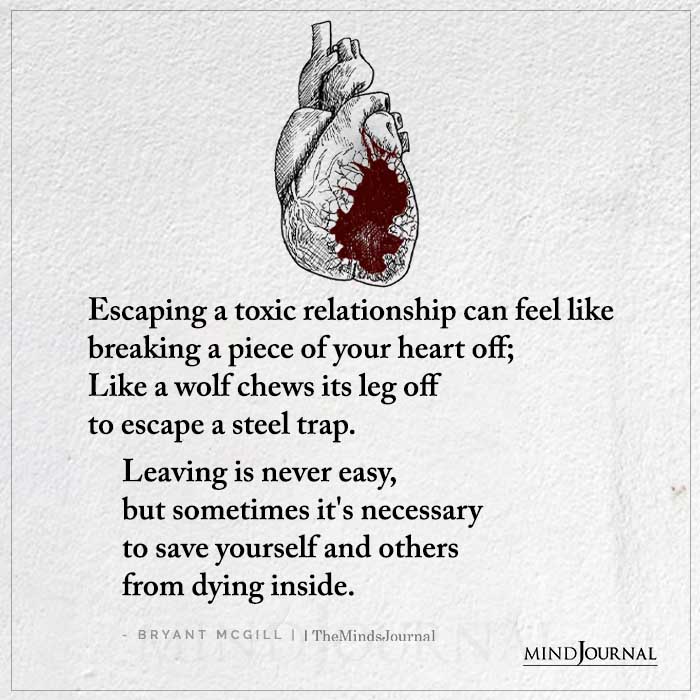
3. Borrow a Brain
Seek out the opinion of family and friends you trust. When your judgment is clouded by passion, it’s good to have a sober second or third opinion. There is a reason every major airline insists on having two pilots in the cockpit… get yourself a co-pilot.
Be honest with your trusted confidante(s) about your romantic relationship, and be honest with yourself if they voice concerns – might this trusted friend be picking up an important detail that you missed? If you feel embarrassed or uncomfortable confiding in your friends about a new relationship, that in itself should send up a red flag.
4. Know Your Deal Breakers
Everyone has a list of qualities that they know their romantic partner must possess in order to make for a happy relationship – shared foundational values, a sense of humor, a love of dogs, etc.
There is an equally important collection of qualities to assess for in a potential match, and those are the dealbreakers – characteristics and behaviors that would make it impossible for you to trust someone or have a lasting intimate relationship with them.
Some common ones include history of cheating or dishonesty, substance abuse, disagreement on having children or opposing religious views. Write these down, both your “must haves” and your dealbreakers. Looking at your list, how does your love interest measure up?
Related: 5 Signs You’re Clinging To Toxic Hope
Conclusion
Toxic relationships take a toll on your life. They are emotionally draining, take up time that you cannot win back, and often end up causing you to feel worse about yourself and pessimistic about the future.
If you are in such a relationship it is important to extract yourself and move on with life.
Written By Forrest Talley Originally Appeared On Forrest Talley
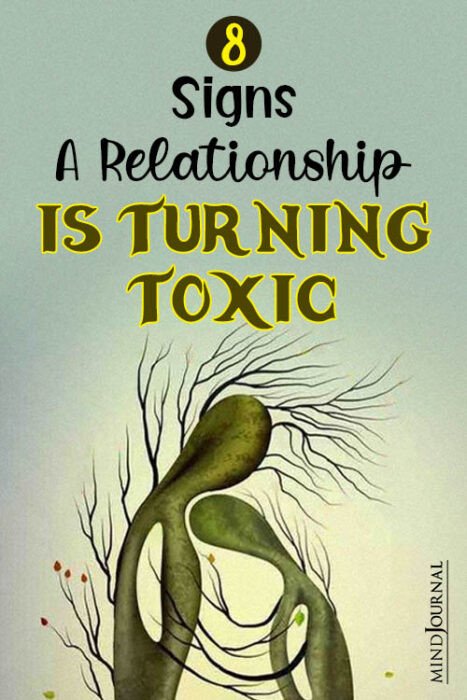
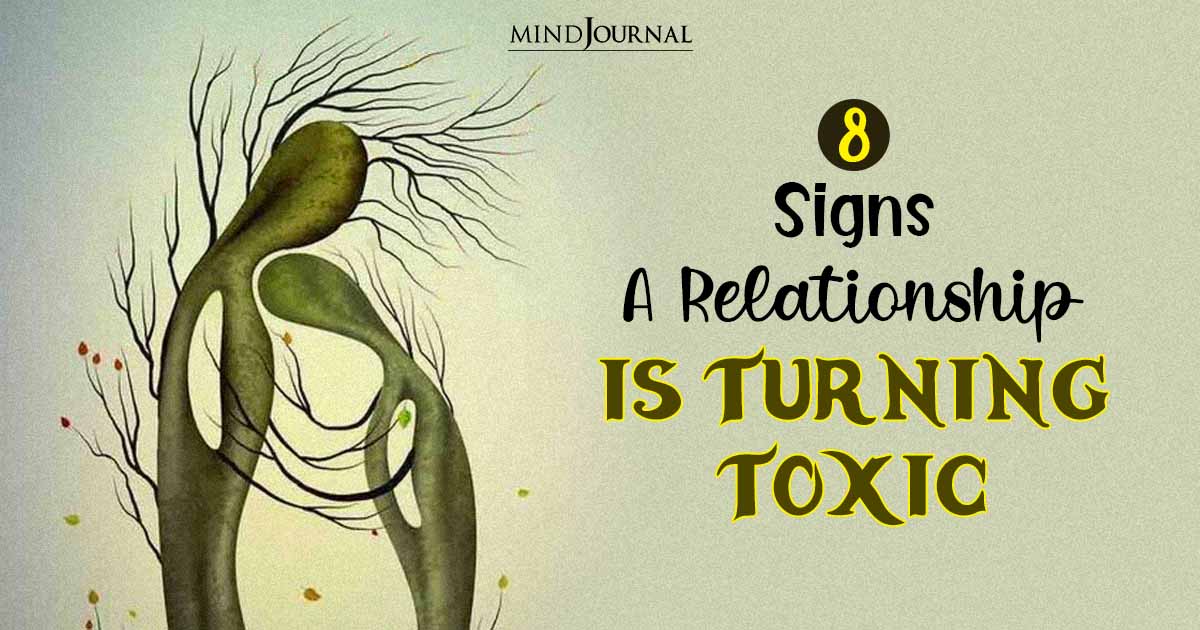
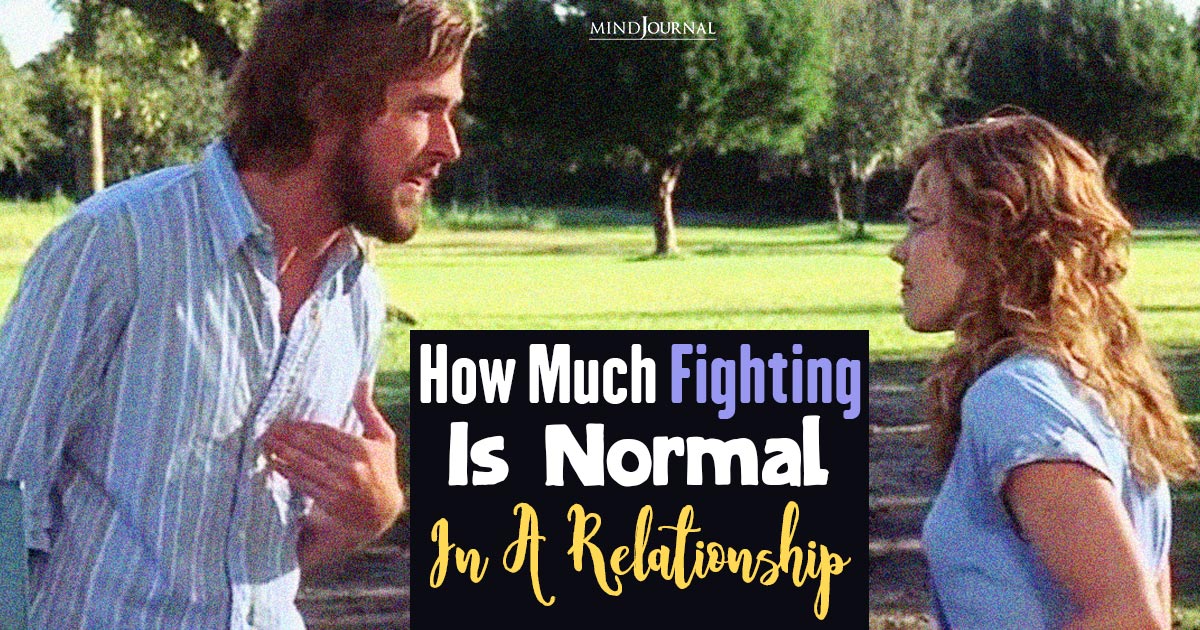
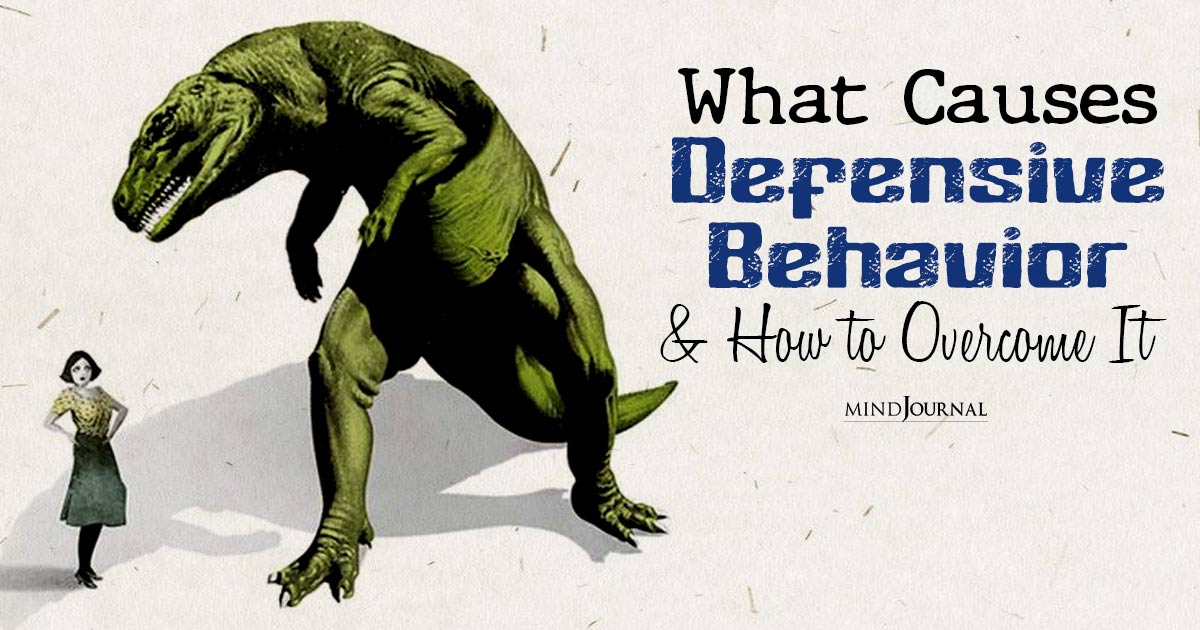
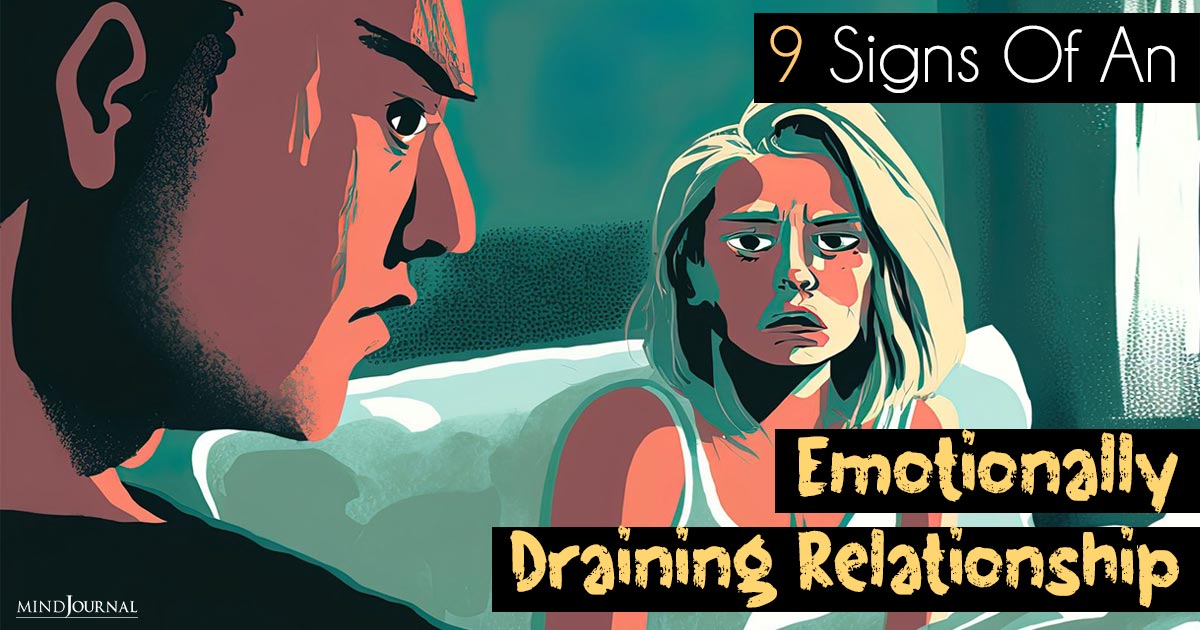

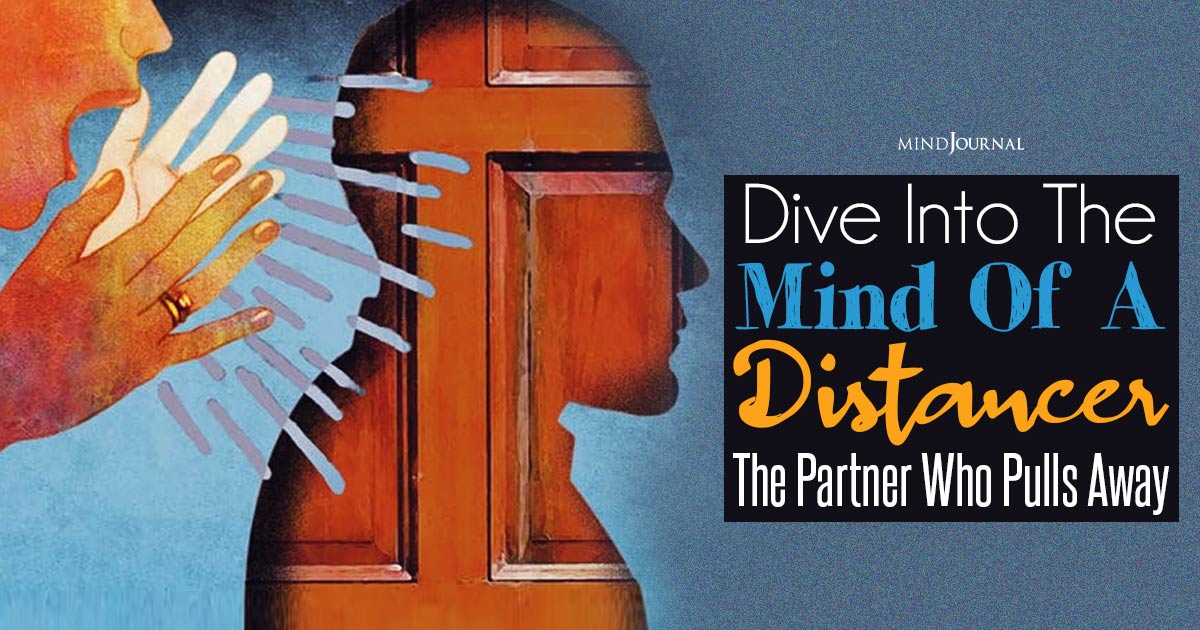


Leave a Reply
You must be logged in to post a comment.